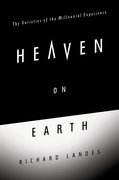Constantine wins control of Roman Empire
This Day in World History – Control of the Roman Empire was in the balance when the armies of Constantine and his brother-in-law Maxentius clashed near the Milvian Bridge, north of Rome. Despite having a smaller army, Constantine triumphed—a victory made secure when Maxentius drowned in the Tiber River while trying to escape. Constantine’s victory left him in command of the western half of the Roman Empire—but it also had more significant consequences.
















